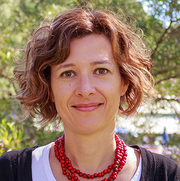Aussies expect newcomers to ‘fit in’ – study finds
Australians are reluctant to change in the face of influxes of refugees and migrants but expect the new arrivals to adopt Australian culture and shed many aspects of their own culture and heritage, recent research has found.
The study into the concept of ‘acculturation’ also found that although Australians expressed a desire to learn about refugees’ cultures and mix with them, they viewed their own role in this process as minimal.
The study, titled How mutual is acculturation?: Majority Australians acculturation attitudes toward refugees, defined ‘acculturation’ as “a mutual and dynamic process of cultural change that occurs when two or more cultures come into contact”.
It surveyed the attitudes of Anglo-Australians to acculturation and found expectations of a one-way adjustment.
“Most of the participants expected refugees to choose strategies of integration or assimilation in which they would interact with majority members, change cultural practices such as what they wear, learn English and embrace the Australian way of life,” the study said.
It said the participants expected refugees to make a concerted effort to make these changes and that the responsibility for integration rested with refugees.
“It was evident that participants consistently thought of refugees as people with Islamic religious beliefs and/or from Middle Eastern or African backgrounds despite the reality that people from refugee backgrounds in Australia come from a much broader range of national origins,” the study said.
It said that participants’ lack of experience and interaction with refugees may lead to stereotyping and associated false beliefs.
“Our findings highlight the complex and ambivalent nature of acculturation, particularly from a majority perspective, and the significant role of the media in forming and perpetuating stereotypes of refugees,” the study said.
“These findings are important because the attitudes of majority members in refugee-receiving countries have been found to directly impact on refugee acculturation and subsequent outcomes,” it said.

Justine Dandy
One of the researchers Dr Justine Dandy of Edith Cowan University said ‘social cohesion’ – which underpinned the concept of acculturation – was a complex and loaded term – now used typically in discussion.
“Some people think that ‘social cohesion’ is just about ‘how we get along’ but that is a simplistic and vague definition because social cohesion is also about the opportunities to make that happen,” she told a recent forum in Melbourne.
“It’s about the process as well as the outcome. And the very use of the term reflects growing concerns about our multi-ethnic community,” Dr Dandy said.
“It assumes that cohesion is desirable and difficult to achieve. So the question begs, is diversity a threat to social cohesion. Well, there’s not a lot of evidence either here or overseas to support that.
“Disadvantage, poverty and inequality are the main drivers of a lack of social cohesion.
“Government policy can be a mediator of these conflicts. Studies show countries which have pluralist, multicultural policies are less likely to negative effects on social cohesion,” she said.
Dr Dandy said a dangerous trend occurred where people were seen to be struggling to integrate – or even struggling economically.
“We are told by some they ‘don’t fit in’. This is dangerous because the real reasons people are not integrating may be economic or about their personal circumstances,” she said.
“Research shows us people can have multiple cultural identities – take the example of Italian Australians for example. We don’t see them as a threat to the broader community,” Dr Dandy said.
She said inclusion was a key economic factor in promoting social cohesion.
“This is the extent to which community members have access to employment, training, health care and housing,” Dr Dandy said.
“Political participation is also important. This is about people voting, writing letters, feeling comfortable to protest and the like,” she said.
Dr Dandy said it was important to have strong macro-institutions to manage conflict around social cohesion.
“But Australia is slipping in regard to this. We’ve seen recently a lack of public confidence in government and politics and the undermining of human rights apparatus,” she said.
But Dr Dandy said Australia generally does well comparatively in social cohesion.
She said social cohesion required a whole of government approach and was not simply the domain of the Department of Social Services or the Department of Immigration.
“And it is a task for the whole community,” Dr Dandy said.
Laurie Nowell
AMES Australia Senior Journalist












